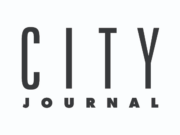Politics is full of people with strong beliefs. Sometimes those beliefs are about principles, like free speech. Other times they are beliefs about facts, like whether big donors “buy” politicians.
“Money in politics” obsessives have long been frustrated at the lack of scholarly support for the notion that political spending directly alters legislative votes, which would help them to push for greater political speech restrictions. This complaint is a central theme of a new report by the progressive Roosevelt Institute, which the institute claims finally proves the link between money and policy.
The authors look at House Democrats who voted for financial regulations in the 2010 Dodd-Frank Act, but then voted to amend it in later years. They claim that political spending by the “finance industry” caused these Democrats to suspiciously “change their minds” – as if nobody can support a law while hoping to improve parts of it. The study’s methods discredit its conclusion.
One problem is how the authors count “political spending.” They include as “political spending,” for example, public relations spending, charitable grants, donations to think tanks, and even political contributions by the firms’ outside lawyers – which supposedly “track the interests of their clients.” (The lawyers don’t have minds of their own, or even other clients?). They ignore the fact that businesses cannot donate directly to political campaigns.
Furthermore, describing spending as all coming from “the finance industry” is misleading and simplistic—Dodd-Frank, for example, had radically different effects on community banks versus large national banks, or on credit unions versus investment banks. The “finance industry” has hardly been monolithic in its reaction to all parts of the law. And the authors do not even bother to show their final spending count, so readers cannot judge how accurate it is.
The study concludes that lawmakers who “changed their minds” about Dodd-Frank were motivated by financial gain, but fails to examine numerous other factors that could impact their votes on regulations, such as economic performance or public opinion. After all, it’s not like Dodd-Frank has been a resounding success that no one thinks can be improved through further amendment. Most studies look at many variables to keep from missing important details, while this one takes minimal steps to do so.
But the rigged nature of the report comes through in the language chosen by the authors. Phrases such as “free market propaganda,” “Gilded Age politics,” and “orgies of deregulation” are more indicative of political ranting than serious research.
Restricting how campaigns are financed necessarily involves limiting the speech and political activity needed to bring about political change. If this is the best evidence for claiming systemic corruption, there is little corresponding benefit from regulating campaign finance.
This post originally ran in The Washington Examiner on May 23rd 2017.














